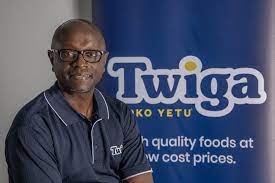Twiga Foods, an agritech company based in Kenya, has resisted an attempt by a cloud services provider to liquidate the company over an alleged debt of 39 million Kenyan shillings.
After contesting the debt, the company, owned by the billionaire Peter Njonjo, was successful in having temporary orders issued that prevented Incentro Africa Ltd. from progressing with the liquidation plan.
Twiga informed Justice Josephine Mong’are that the liquidation petition was filed in retaliation after it complained directly to Google Ireland, the ultimate provider of the cloud services, about how the billing account was created, organised, and managed. This was done to cover up the true motivation behind the petition.
The hearing on the case is scheduled to take place on Tuesday morning, per the directive of Justice Mong’are.
“That Incentro Africa is acting unreasonably in pursuing liquidation of the company instead of pursuing other remedies as set out in the agreement between the parties,” the firm said in the petition.
Following the delivery of an undated demand for $261,878 to Twiga, which was also filed in court on September 4th, the company decided to seek legal recourse.
Read also: ‘‘Twiga Foods’’ begins massive Maize cultivation in Kenya
Why Twiga is against the demand
Daniel Ngugi, who is the head of legal for the agritech company, stated that the demand was flawed due to the fact that it had been presented too early.
Mr Ngugi added that the Google Cloud services provider made the demand in bad faith and in an effort to coerce Twiga into paying a debt that did not exist.
“That in the event that Incentro Africa is allowed to file and publish a liquidation petition, it will cause extreme damage to the company because of the wrongful impression to its employees, business partners, bankers, creditors and partners and the Kenya Revenue Authority that the company is insolvent,” he said.
Mr Ngugi stated that any procedures to dissolve the firm would result in cross-default for all of the company’s lenders regarding all of the loan obligations that it is currently servicing.
Twiga is a business-to-business marketplace platform that acquires food directly from farmers and then delivers it to urban shops by means of a mobile-based cashless (B2B) supply platform. This allows Twiga to get access to distribution among the millions of small and medium-sized vendors who work in urban marketplaces.
The company needed to work with a cloud services provider in order to operationalize and improve its business, and the distributor has been utilising Incentro’s Google Cloud platform reseller account since it was established.
“For its suppliers, the threatened liquidation proceedings would extinguish the credit terms the company has, putting the company in a negative working capital position,” Mr Ngugi said.
He stated that the cloud services contract was executed between Twiga and an entity known as Incentro Africa BV. Incentro Africa BV is a separate legal entity from Incentro Africa Ltd., which is the company that Incentro Africa Ltd. works for.
According to Mr Ngugi, Incentro Africa, whose CEO is Dennis De Weerd, is unable to benefit or claim from the provisions of that contract, and the statutory demand is consequently flawed and unmerited.
Incentro Africa BV and Twiga are the parties that are credited with having executed an addition to the cloud services agreement that was later discovered to be undated by Google.
Twiga, on the other hand, asserts that the addition is invalid and cannot be enforced because Incentro Africa BV is a different and independent legal company from Incentro Africa Ltd.
Twiga’s commitment
Twiga made a commitment to a minimum obligation in terms of the amount of money it would spend on Google platform services and technical support services.
According to the allegations, the minimum commitment amounted to $3,034,007 and was to be fulfilled over the course of three years. It was expected that failing to meet the minimum commitment obligation would result in the cloud services agreement being terminated.
In addition to this, it established a partner services fund, by means of which Twiga made a commitment to employ authorised partner services provided by Incentro Africa BV, and in exchange, Google agreed to pay Incentro Africa a total of $168,000 in cash.
The amount being requested takes into account unused and accrued cash for partner services in addition to interest and other professional fees, bringing the total to 244,008.
A month later, Mr. Ngugi alleged that Google cloud services and partner service funds presented Twiga with a second demand for payment in the amount of $261,878.
According to the food distributor, a reconciliation of its account with Incentro reveals that the sole money still owed for the utilisation of Google Cloud services is 13.2 million Kenyan Shillings.
The company claims that it has paid Incentro Africa Sh95 million over the course of two years, which demonstrates that the company is acting in good faith and has the desire to honour its contractual commitments.




